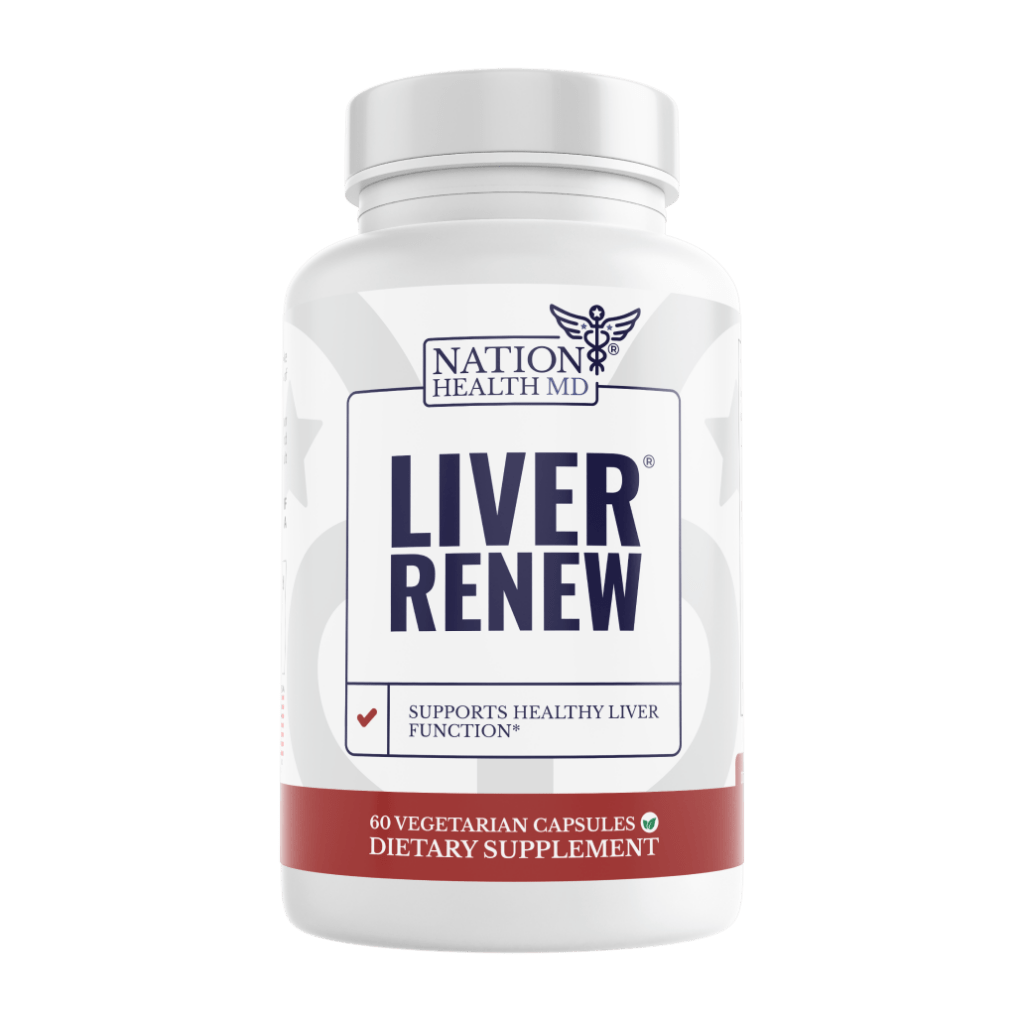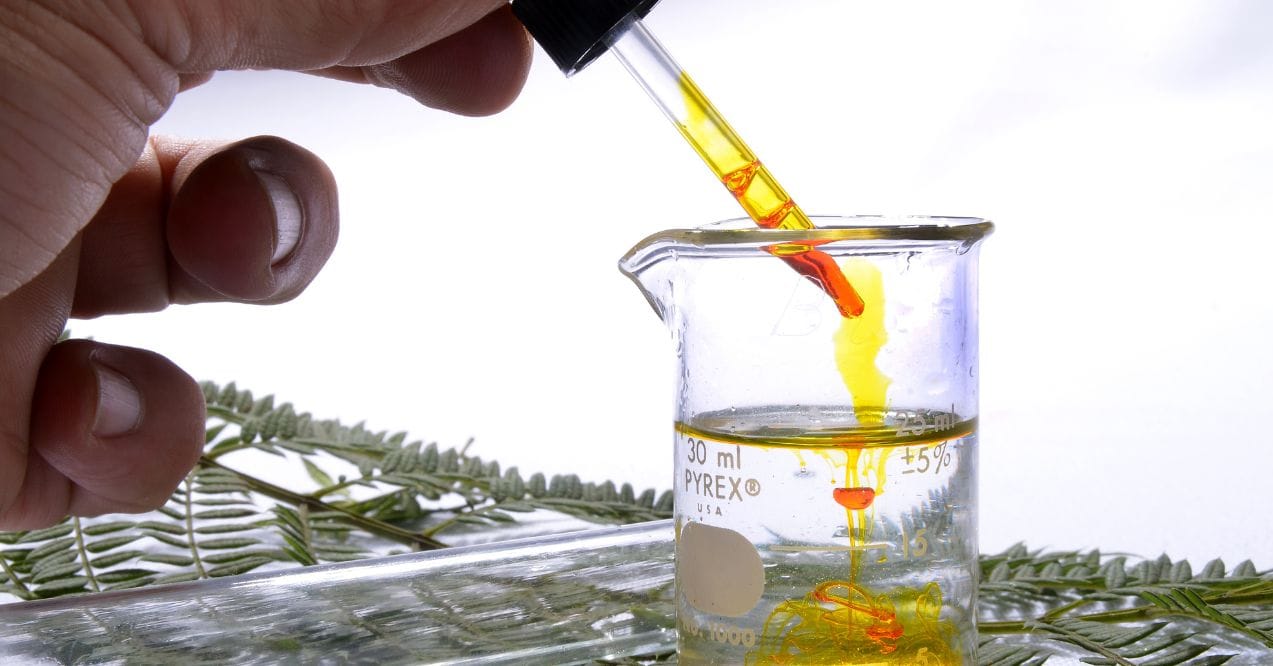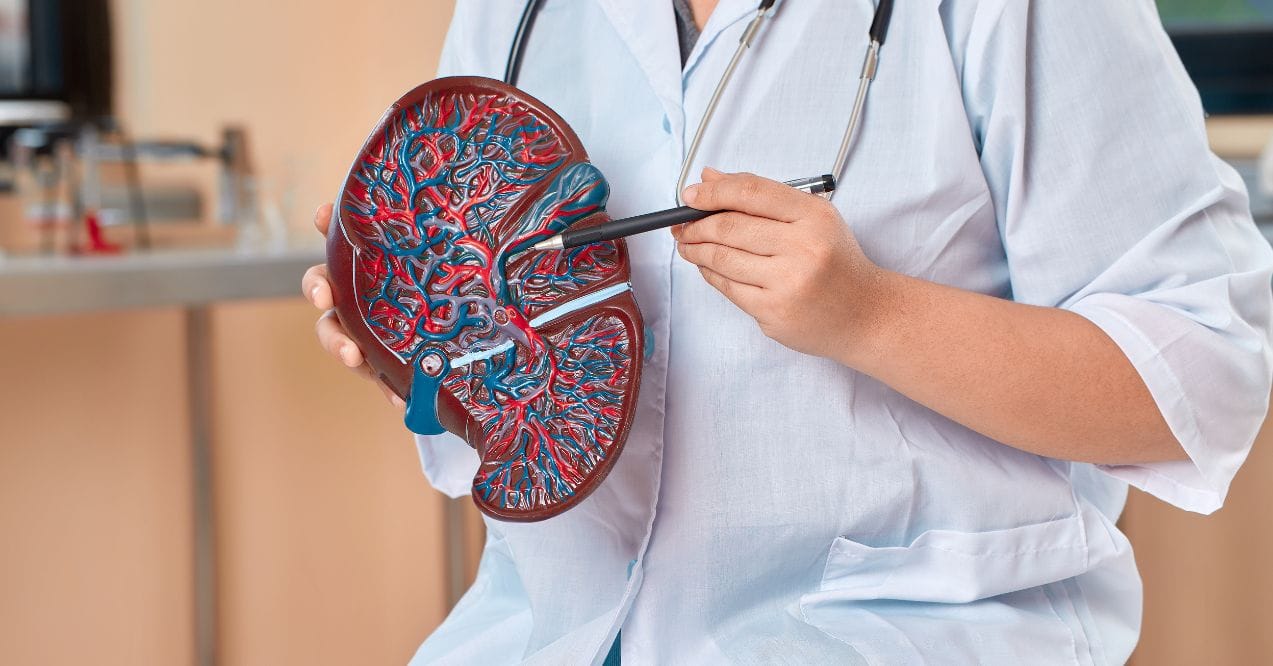Can Berberine Damage the Liver?
Medically reviewed by our experts
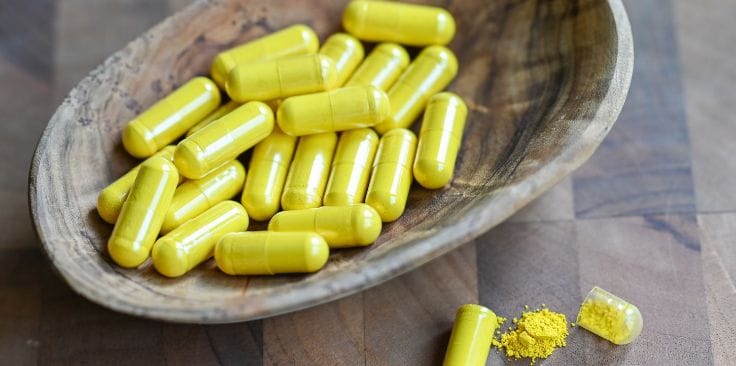

Can berberine damage the liver? This question often arises when considering the use of berberine, a natural compound found in various plants. Known for its long history in traditional wellness practices, berberine is studied today for its potential to support various health functions, including liver health. In this blog, we explore berberine’s relationship with liver function, examining both its benefits and any possible risks.
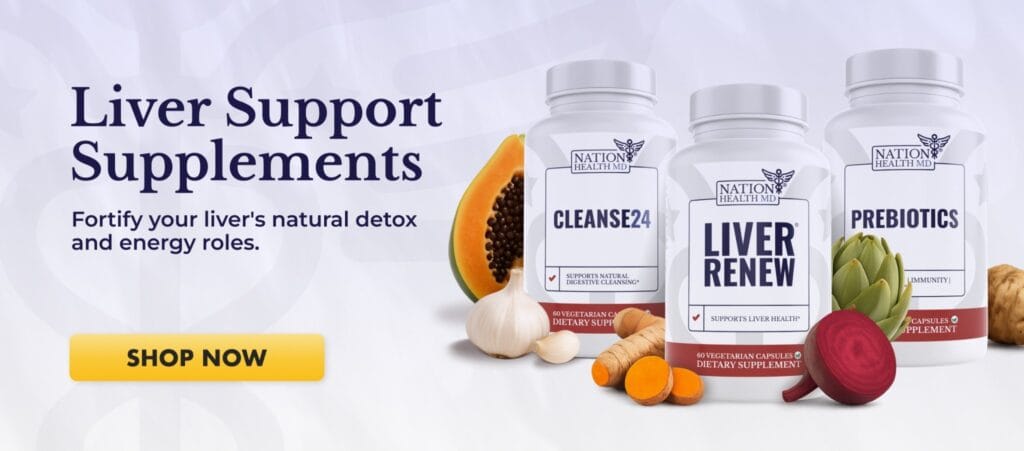
Key Article Findings
- Berberine may support liver metabolism and enzyme activity, promoting overall liver health.
- Responsible use of berberine, including following recommended dosages, is crucial to avoid potential risks.
- Consulting a healthcare professional is essential when combining berberine with other supplements or medications to ensure safe use.
What is Berberine?
Berberine is a natural compound known as a plant alkaloid, derived from several herbs such as goldenseal, barberry, and Oregon grape. For centuries, it has played a vital role in traditional medicine, valued for its potential to support overall health. Today, berberine is gaining popularity in modern health supplements due to its versatility and potential benefits. As more people seek natural solutions for their wellness needs, berberine stands out as a promising addition to many health regimens, offering a balance between time-honored tradition and contemporary science.
Berberine’s Effects on Liver Function
Berberine has a unique relationship with the liver, particularly in how it influences liver metabolism and overall hepatic function. The liver plays a key role in nutrient processing and detoxification, and berberine’s natural properties may help support these functions. By promoting efficient liver enzyme activity, berberine can assist in maintaining the organ’s ability to process fats and other compounds. This interaction suggests berberine may contribute to balanced liver health, making it a valuable addition for those seeking to support their body’s natural metabolic processes and overall wellness.
Potential Liver Benefits of Berberine
Berberine offers several potential benefits for liver health by supporting liver cell integrity and promoting healthy liver function.
Supporting Liver Cell Health

Berberine may support liver cell health through its protective and regenerative properties. A recent study (2024) has revealed that berberine exhibits antioxidant effects, neutralizing free radicals that can damage liver cells. It also possesses anti-inflammatory capabilities, reducing inflammation that can lead to liver fibrosis and scarring.
Furthermore, berberine promotes the regeneration of liver cells by activating pathways involved in cell growth and repair. Another research (2022) indicates that berberine can inhibit the apoptosis of hepatocytes, ensuring the maintenance of healthy liver tissue. These mechanisms collectively help preserve liver cell integrity and function, fostering a resilient hepatic environment.
Promoting Healthy Liver Function
Berberine plays a significant role in promoting healthy liver function by enhancing various metabolic and detoxification processes. It activates AMP-activated protein kinase (AMPK), a key regulator of energy balance, which improves lipid metabolism and reduces liver fat accumulation.
Berberine also supports the liver’s detoxification pathways by increasing the activity of enzymes involved in breaking down and eliminating toxins. A study (2021) has demonstrated that berberine supplementation can improve liver function tests, indicating enhanced liver performance. Additionally, its ability to regulate blood sugar and lipid levels further contributes to maintaining a healthy liver, making berberine a valuable aid in preventing liver-related disorders.
Considerations When Using Berberine
When using berberine, it’s essential to consider its potential effects on liver function, especially regarding enzyme activity and nutrient metabolism. Understanding these interactions can help ensure safe and effective use.
Interactions with Liver Enzymes
Berberine may influence liver enzyme activity, particularly the enzymes responsible for breaking down substances in the liver. This interaction could impact how the liver metabolizes certain compounds, including medications, supplements, or other nutrients. For some individuals, this effect may lead to altered effectiveness of these substances or potential strain on the liver.
Impact on Nutrient Metabolism
The liver plays a central role in nutrient metabolism, and berberine may affect how the liver processes various nutrients. Berberine’s interaction with liver enzymes can influence how fats, proteins, and carbohydrates are metabolized. This may result in improved or altered nutrient absorption and processing.
Can Berberine Damage the Liver ?

Can berberine damage the liver? Current evidence suggests that when used responsibly, berberine is unlikely to harm the liver and may even support liver health. Research indicates that berberine may promote liver cell protection and assist in maintaining healthy liver function.
However, at very high doses, there is potential for berberine to interfere with liver enzymes, which could impact how the liver metabolizes other substances. To avoid adverse effects, it’s crucial to follow recommended dosages and consult with a healthcare professional if you are combining berberine with other supplements or medications.
Berberine vs. Other Liver-Supporting Supplements
While berberine offers a distinctive approach by supporting liver metabolism and enzyme activity, other liver-supporting supplements can also effectively promote liver function. Look for these ingredients:
- Milk Thistle – Known for its silymarin content, which helps support liver cell health.
- Artichoke Extract – May assist with bile production, promoting better digestion and liver function.
- Turmeric – Contains curcumin, an antioxidant that may benefit liver health.
For those seeking comprehensive liver support, Liver Renew by Nation Health MD offers a synergistic blend of powerful ingredients. Endorsed by Lisa King, RPh, this formula combines the benefits of milk thistle, known for supporting liver cell health, and artichoke extract, which may promote healthy bile production. Additionally, turmeric provides antioxidant support to help maintain overall liver function. Together, these ingredients work harmoniously to support your liver’s natural processes, helping you maintain energy and vitality.
Safety Considerations and Monitoring Berberine Use
When using berberine, it’s essential to follow safety guidelines to ensure its proper and effective use. Key considerations include:
- Recommended Dosage – Always follow the recommended dosage on the product label or as directed by a healthcare provider.
- Consultation – Before starting berberine, consult with a healthcare professional, especially if you are taking other supplements or medications.
- Monitoring Health – Regularly monitor how your body responds to berberine, particularly liver function and enzyme activity.
- When to Seek Medical Attention – If you experience any unusual symptoms or changes in liver health, contact a healthcare provider promptly.
Conclusion: Understanding Berberine and Liver Health
So, can berberine damage the liver? Understanding the relationship between berberine and liver health is essential for making informed wellness choices. Berberine offers potential benefits in supporting liver metabolism and enzyme activity, contributing to overall liver function. However, it is important to use berberine responsibly, adhering to recommended dosages and consulting healthcare professionals when necessary. By balancing its supportive effects with mindful usage, individuals can harness berberine’s advantages while minimizing any potential risks. Ultimately, berberine can be a valuable component of a liver health regimen when integrated thoughtfully and safely.
Berberine is known for its potential to support liver metabolism and enzyme activity, which can contribute to maintaining healthy liver function. By promoting efficient nutrient processing and detoxification pathways, berberine may help sustain overall liver health.
Berberine may influence liver enzymes involved in metabolizing various compounds. This interaction could impact how the liver processes nutrients, supplements, or medications. Following recommended dosages helps manage this effect while supporting liver wellness.
Berberine can generally be taken with other supplements, but it’s essential to consider any potential interactions with liver enzymes. Consulting a healthcare professional is advised, especially when combining berberine with other supplements or medications, to ensure safe and effective use.
BERBERINE: Overview, uses, side effects, precautions, interactions, dosing and reviews. (n.d.).
Kalra, A., et al. (2023). Physiology, liver. StatPearls – NCBI Bookshelf.
Nie, Q., et al. (2024). The clinical efficacy and safety of berberine in the treatment of non-alcoholic fatty liver disease: a meta-analysis and systematic review. Journal of Translational Medicine, 22(1).
García-Muñoz, A. M., et al. (2024). A descriptive review of the antioxidant effects and mechanisms of action of berberine and silymarin. Molecules, 29(19), 4576.
Fang, X., et al. (2022). Research progress on the pharmacological effects of berberine targeting mitochondria. Frontiers in Endocrinology, 13.
Jin, Y., et al. (2016). Berberine enhances the AMPK activation and autophagy and mitigates high glucose-induced apoptosis of mouse podocytes. European Journal of Pharmacology, 794, 106–114.
Ye, Y., et al.(2021). Efficacy and Safety of Berberine alone for several metabolic disorders: A Systematic Review and Meta-Analysis of Randomized Clinical Trials. Frontiers in Pharmacology, 12.
Professional, C. C. M. (2024). Enzymes. Cleveland Clinic.
Zhang, L., et al. (2021). Effects of berberine on the gastrointestinal microbiota. Frontiers in Cellular and Infection Microbiology, 10.
Kong, W., et al. (2004). Berberine is a novel cholesterol-lowering drug working through a unique mechanism distinct from statins. Nature Medicine, 10(12), 1344–1351.
Nelson, A. (2022). Does milk thistle help your liver? WebMD.
Salem, M. B., et al. (2015). Pharmacological studies of artichoke leaf extract and their health benefits. Plant Foods for Human Nutrition, 70(4), 441–453.
Farzaei, M., et al. (2018). Curcumin in liver Diseases: A systematic review of the cellular mechanisms of oxidative stress and clinical perspective. Nutrients, 10(7), 855.
Popular Articles
Advertisement. This site offers health, wellness, fitness and nutritional information and is designed for educational purposes only. You should not rely on this information as a substitute for, nor does it replace, professional medical advice, diagnosis, or treatment. If you have any concerns or questions about your health, you should always consult with a physician or other health-care professional. Do not disregard, avoid or delay obtaining medical or health related advice from your health-care professional because of something you may have read on this site. The use of any information provided on this site is solely at your own risk.
